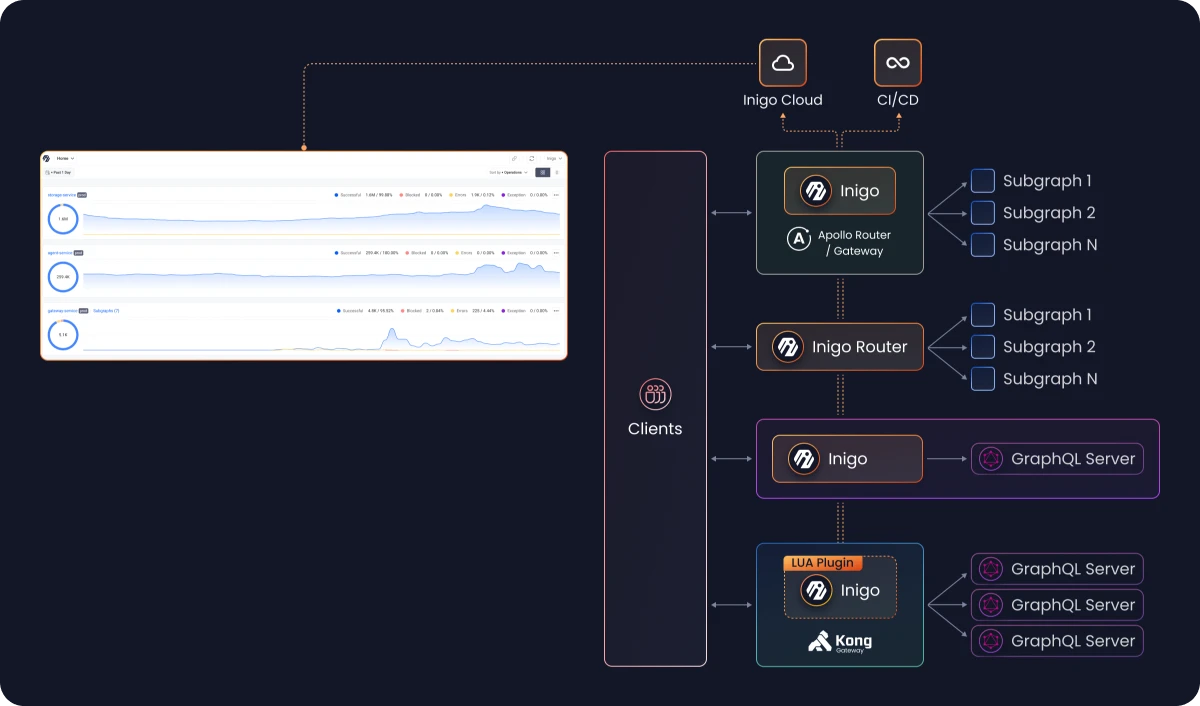Key benefits:
- GraphQL Troubleshooting with Advanced Observability
- GraphQL Developer Lifecycle and CFR
- GraphQL Federation
- GraphQL Security
Inigo provides GraphQL teams with the tools to manage schemas confidently, ensuring scalability, security, and seamless collaboration. From schema design to observability and runtime security, Inigo is the most comprehensive solution for managing the entire GraphQL lifecycle.
Key benefits:
- Enhanced Observability: Offers real-time insights into API performance and errors.
- Deep Analytics: Provides detailed usage and performance analytics for optimization.
- Advanced Security: Features robust security with query protection and access control.
- API Lifecycle Management: Inigo streamlines GraphQL development, deployment, and maintenance.
- Schema Management: Prevents breaking changes, supporting scalable GraphQL APIs.
- Operational Efficiency: Reduces complexity with configuration-as-code practices.
- Compliance and Governance: Meets high regulatory standards, ensuring industry compliance.
Your GraphQL, Your Rules
Inigo integrates seamlessly into your existing GraphQL pipelines with our flexible add-ons, middleware, and deployment options.
Why It Matters
Platform and security teams face significant challenges when managing GraphQL in production environments. Unlike traditional REST APIs, GraphQL introduces complexities that existing REST-focused tools can't address effectively:
- Higher CFR and MTTR: GraphQL workflows often lead to increased change failure rates and longer mean time to resolution due to the interconnected nature of schema changes and query usage.
- Schema Management Risks: Traditional tools lack the granularity needed to ensure backward compatibility and avoid breaking API consumers.
- Security Challenges: REST security solutions are blind to GraphQL-specific threats, leaving APIs vulnerable to DoS attacks, unauthorized data exposure, and resolver exploits.
- Team Collaboration: REST tooling isn’t designed to handle the schema coordination and versioning requirements of distributed GraphQL teams.
For Any Deployment Mode
Inigo enhances your existing GraphQL infrastructure through flexible integration options:

Developer Excellence
To manage GraphQL confidently, teams need purpose-built solutions like Inigo, designed to bridge the critical gaps left by REST tooling and provide the robust capabilities required for scaling GraphQL in production.